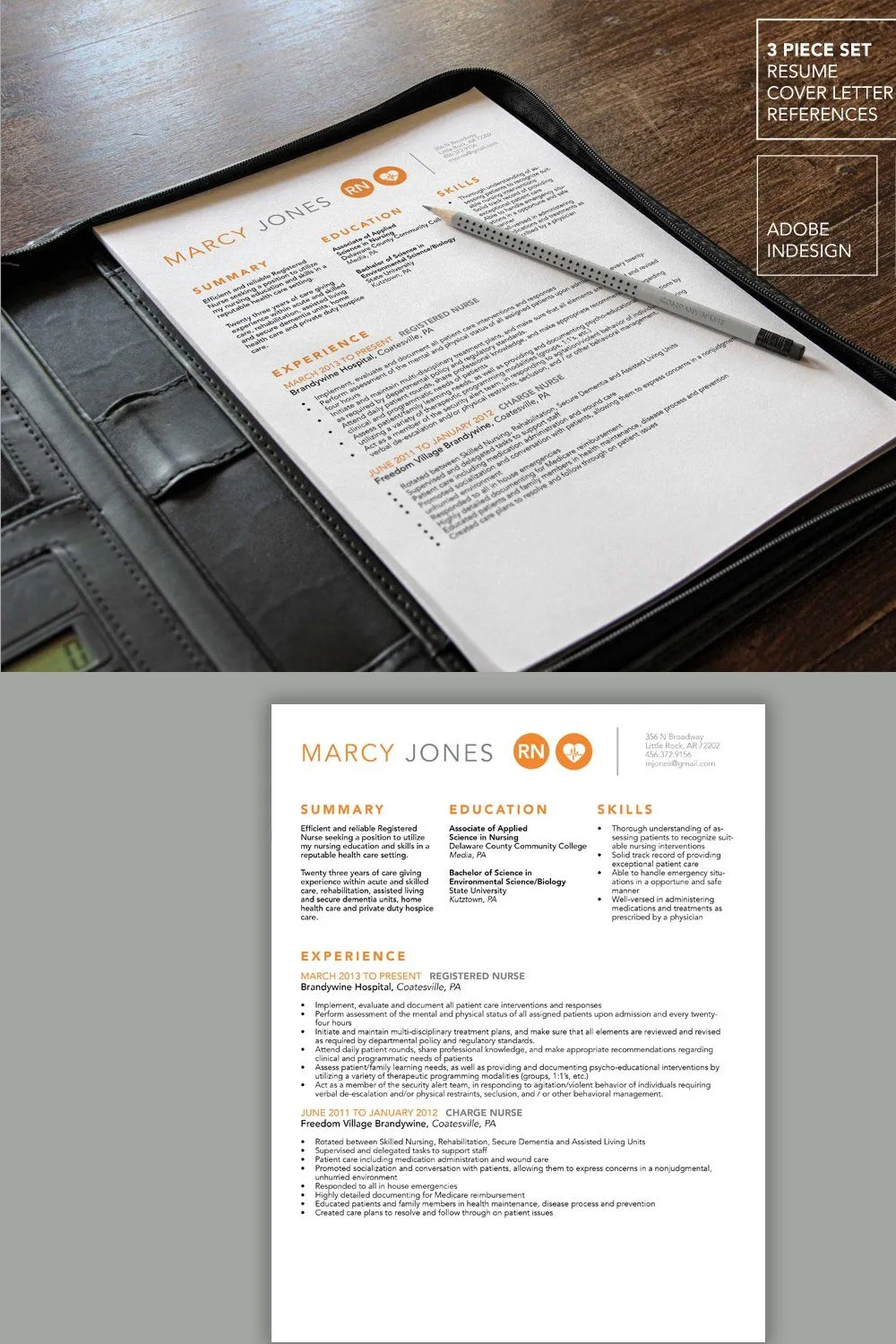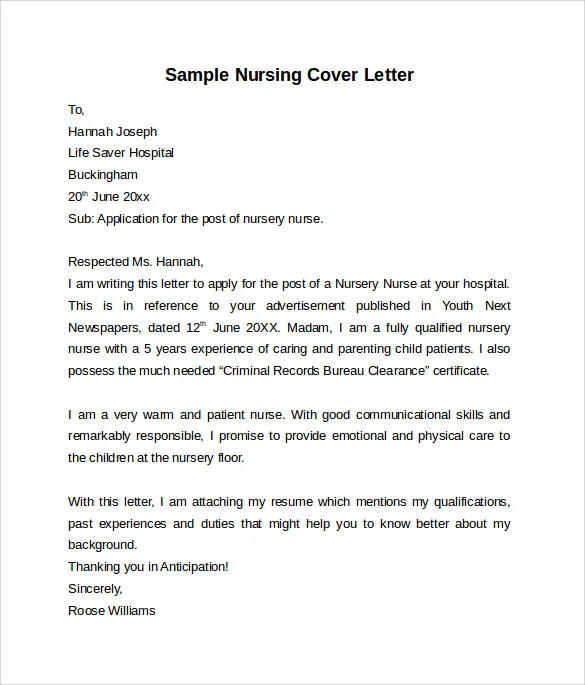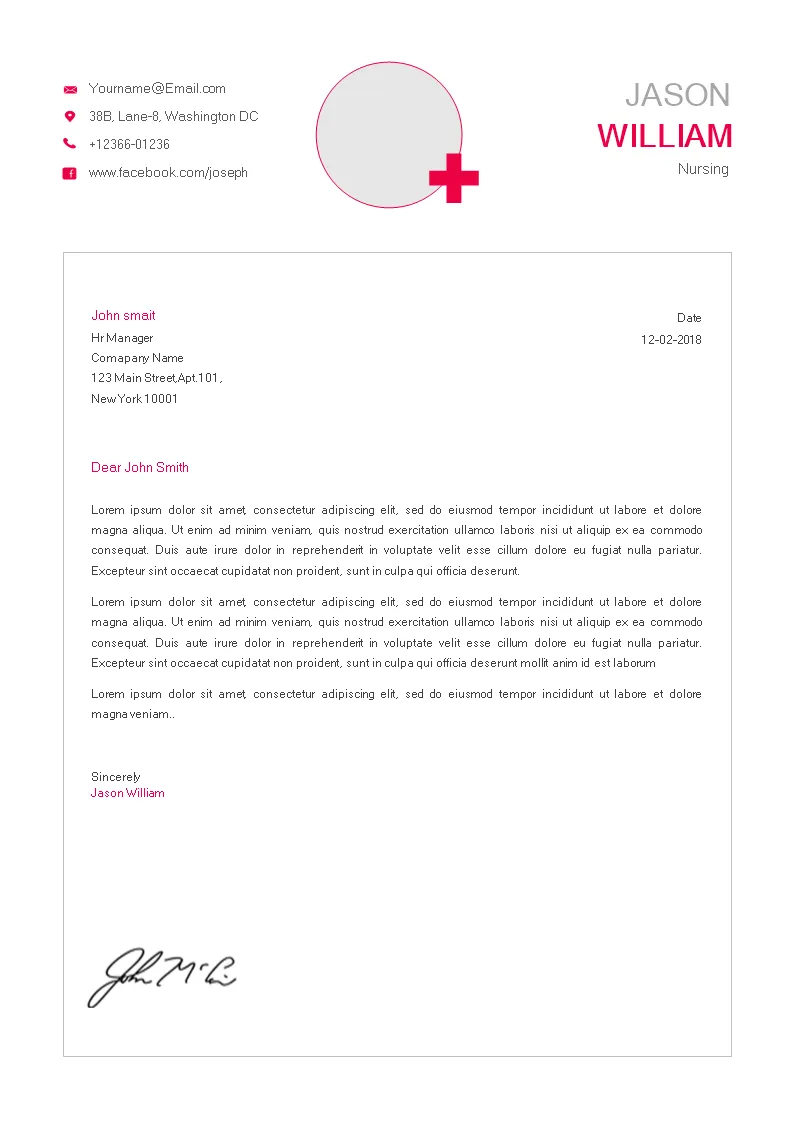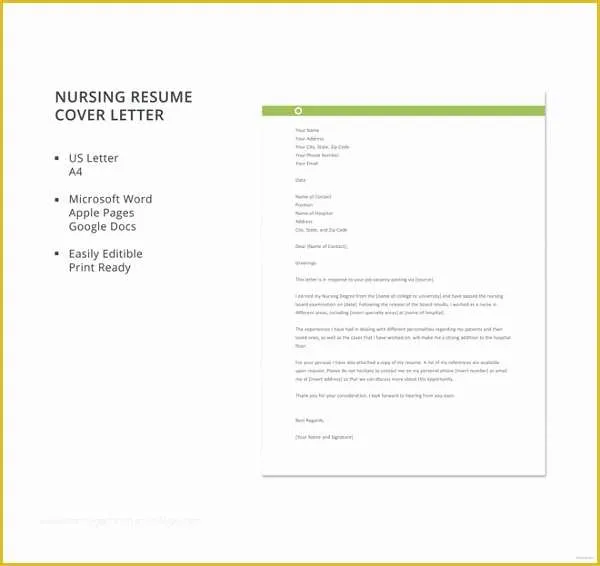Crafting a Compelling Nursing Cover Letter
Your nursing cover letter is your first chance to make a positive impression on a potential employer. It’s more than just a formality; it’s a critical marketing tool that should highlight your key skills, experience, and enthusiasm for the role. A well-crafted cover letter complements your resume by providing a narrative that showcases your personality and career goals. It allows you to elaborate on specific achievements and explain how your qualifications align with the job description and the needs of the healthcare facility. A compelling cover letter is tailored to each position and facility you are applying to, demonstrating your genuine interest and commitment to the opportunity. It also offers the opportunity to address any potential gaps or issues in your resume, providing context and ensuring your application stands out from the crowd.
Highlighting Your Nursing Skills and Experience
When crafting your cover letter, focus on showcasing your most relevant nursing skills and experiences. Start by carefully reviewing the job description and identifying the key requirements and desired qualifications. Then, in your cover letter, provide specific examples of how you have demonstrated these skills in previous roles. Quantify your achievements whenever possible, using numbers and data to illustrate your impact. For instance, instead of stating that you provided excellent patient care, you could mention that you consistently maintained a high patient satisfaction rating or successfully reduced patient readmission rates. Be sure to highlight your ability to work collaboratively as part of a healthcare team, showcasing skills such as communication, empathy, and critical thinking. Furthermore, tailor your description to address the core competencies as outlined in the job description.
Showcasing Relevant Nursing Experience

Your nursing experience is the core of your application, and your cover letter is the perfect place to highlight it. Start by outlining the key responsibilities you held in your previous roles, focusing on experiences that are most relevant to the position you’re applying for. Provide specific examples of your achievements, such as successful patient outcomes, improved efficiency in workflows, or contributions to team projects. If you have experience in a particular specialty, such as critical care, oncology, or pediatrics, be sure to emphasize this, as this is often a key requirement. For each role, describe your specific contributions, including the types of patients you cared for, the procedures you performed, and any special skills or certifications you utilized. Consider including a brief overview of any leadership roles you held, such as charge nurse or mentor, highlighting your ability to lead and guide other healthcare professionals. Furthermore, always tie back the experience to how you can benefit the potential employer.
Detailing Your Nursing Education and Certifications
Your nursing education and certifications are critical components of your application, underscoring your qualifications and competence. Clearly state your educational background, including the name of your nursing school, the degree you earned (e.g., BSN, MSN, ADN), and the year of graduation. Highlight any academic achievements, such as honors or awards, that demonstrate your dedication and excellence. List your current certifications, such as RN (Registered Nurse), and any specialized certifications, such as ACLS (Advanced Cardiac Life Support) or BLS (Basic Life Support). Mention any additional training or continuing education courses you’ve completed, such as certifications in a particular specialty or training in advanced medical procedures. This helps demonstrate your commitment to ongoing professional development and your willingness to stay current with the latest advancements in healthcare. The information provided here helps to emphasize your qualifications and enhances your value to the employer.
Customizing Your Cover Letter
A generic cover letter is a quick way to end up in the rejection pile. Take the time to customize each cover letter to match the specific job and the hiring facility. Begin by researching the healthcare facility and learning about its mission, values, and the specific needs of the nursing department. Tailor your cover letter to reflect your understanding of the organization and how your skills and experience align with their goals. Address the cover letter to the hiring manager by name whenever possible, which shows that you’ve taken the extra step to personalize your application. In your cover letter, explicitly reference the job description and highlight the key requirements and qualifications that the employer is seeking. Use the same keywords and phrases as in the job description, as this will help your application get noticed by applicant tracking systems. By customizing your cover letter, you demonstrate your genuine interest in the role and facility, which makes a positive impression.
Formatting Your Nursing Cover Letter

A well-formatted cover letter is essential for creating a professional image and ensuring that your application is easy to read. Use a standard business letter format, with a clear and readable font such as Times New Roman or Arial. Maintain consistent formatting throughout the letter, including font size, spacing, and alignment. Start with your contact information at the top, followed by the date and the hiring manager’s contact information. Begin with a professional greeting, such as “Dear Mr./Ms. [Last Name].” The body of your cover letter should be concise and well-organized, with clear paragraphs and headings to guide the reader. Keep the letter to one page, if possible, by being selective about the information you include. Proofread your cover letter carefully for any typos or grammatical errors, as these can detract from your professionalism. Maintain a professional layout that reflects your attention to detail, which is an essential quality in nursing.
Reviewing and Editing Your Nursing Cover Letter
Once you’ve written your cover letter, take the time to review and edit it carefully. This is a crucial step to ensure that your letter is free of errors and effectively communicates your qualifications. Start by proofreading for any typos, grammatical errors, or inconsistencies in formatting. Read your cover letter aloud to catch any awkward phrasing or sentences that don’t flow smoothly. Ask a friend, family member, or career counselor to review your cover letter and provide feedback. They can offer a fresh perspective and help you identify areas for improvement. Make sure that your cover letter aligns with your resume and accurately reflects your skills, experience, and career goals. Ensure that your letter is well-organized and easy to read, with clear headings and concise paragraphs. By reviewing and editing your cover letter, you will increase your chances of making a positive impression on the hiring manager.
Common Mistakes in Nursing Cover Letters
Avoiding common mistakes can greatly improve your chances of landing an interview. One frequent error is using a generic, impersonal cover letter that is not tailored to the specific job. Failure to proofread for typos and grammatical errors is another common mistake that can damage your credibility. Don’t repeat your resume verbatim, instead use your cover letter to elaborate on your experiences and highlight your key skills. Another common error is focusing too much on what you want instead of how you can benefit the employer. Avoid using overly casual language or slang, which can be unprofessional. Including irrelevant information or failing to address the specific requirements of the job is also a common error. Make sure to avoid a negative tone or criticizing past employers, as this can reflect poorly on your professionalism. Being mindful of these common pitfalls can make a big difference.
Emphasizing Key Nursing Skills

Highlighting your key nursing skills is critical to capturing the attention of hiring managers. Tailor your description to the requirements of the job. Focus on skills such as patient assessment, medication administration, wound care, and electronic health records (EHR) proficiency, making sure to address what is outlined in the description. Demonstrate your ability to work well under pressure, your teamwork abilities, and your communication skills. Emphasize your ability to think critically, solve problems, and make sound clinical decisions. Also, highlight your interpersonal skills, such as empathy, compassion, and the ability to build rapport with patients and their families. Use strong action verbs to describe your skills, such as “assessed,” “administered,” “coordinated,” and “educated.” Finally, be sure to provide specific examples to support your claims, demonstrating how you have applied these skills in past roles.
Writing a Strong Closing for Your Cover Letter
Your closing paragraph provides the final opportunity to make a positive impression, so make sure it is compelling. Reiterate your interest in the position and express your enthusiasm for the opportunity. Summarize your key qualifications and why you are a good fit for the role. Include a call to action, such as stating that you are eager to discuss your qualifications further and are available for an interview at their earliest convenience. Thank the hiring manager for their time and consideration. Use a professional closing, such as “Sincerely” or “Respectfully,” followed by your typed name. Proofread your closing carefully to ensure it is free of errors and reinforces your professionalism.
